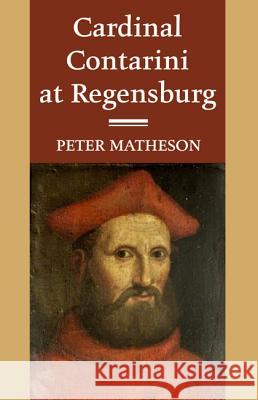Cardinal Contarini at Regensburg » książka
Cardinal Contarini at Regensburg
ISBN-13: 9781498204668 / Angielski / Miękka / 2014 / 193 str.
The aim of this book is to demonstrate that the sixteenth-century ""ecumenical movement,"" and in particular, the colloquy between Catholics and Protestants at Regensburg in 1541, was by no means an idle ""dream of an understanding,"" doomed from the start. Contarini's campaign for reconciliation mirrors the richness and elusiveness of pre-Tridentine Catholicism. It was the clash of cultures and politics as much as purely theological considerations that led to the failure of the Regensburg colloquy. Contarini was not without sympathy for Lutheran theology until faced by the full implications of a Protestant church and a Protestant culture. He then retreated, first to a confessional Catholicism, then to an intolerant Curialism. Peter Matheson is a Fellow in the Department of Theology and Religion at Otago University in New Zealand. He has authored several books in Renaissance and Reformation studies, with a particular focus on radical movements and women's history, including The Imaginative World of the Reformation.
The aim of this book is to demonstrate that the sixteenth-century ""ecumenical movement,"" and in particular, the colloquy between Catholics and Protestants at Regensburg in 1541, was by no means an idle ""dream of an understanding,"" doomed from the start. Contarinis campaign for reconciliation mirrors the richness and elusiveness of pre-Tridentine Catholicism. It was the clash of cultures and politics as much as purely theological considerations that led to the failure of the Regensburg colloquy. Contarini was not without sympathy for Lutheran theology until faced by the full implications of a Protestant church and a Protestant culture. He then retreated, first to a confessional Catholicism, then to an intolerant Curialism.Peter Matheson is a Fellow in the Department of Theology and Religion at Otago University in New Zealand. He has authored several books in Renaissance and Reformation studies, with a particular focus on radical movements and womens history, including The Imaginative World of the Reformation.











